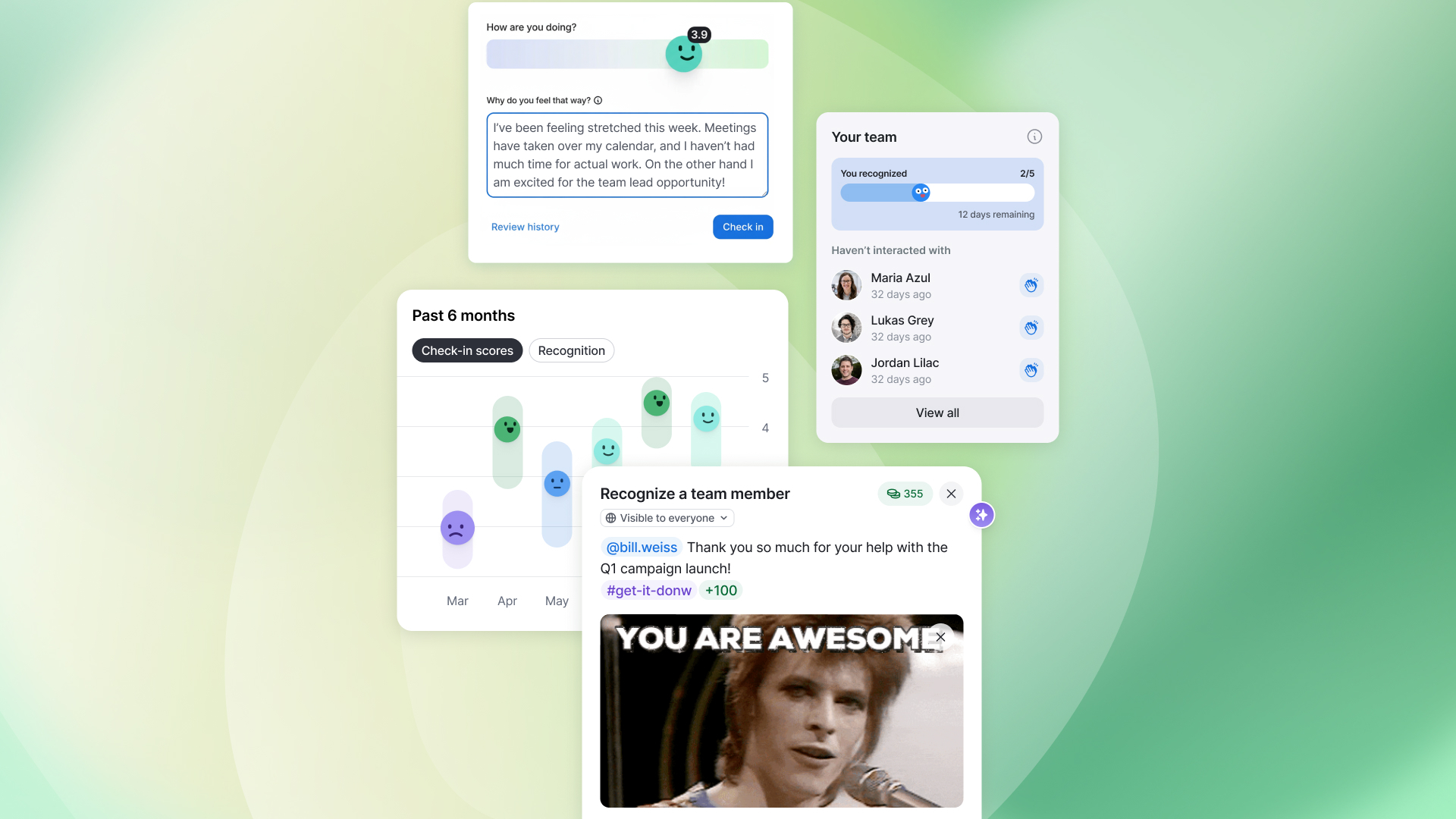5 Easy Ways to Soothe Company Culture Growing Pains

As businesses grow, they inevitably change.
When that growth and change happens on a narrow timescale, cultural growing pains are a common result. While you may not be able to completely avoid these growing pains, you can take steps to minimize them. Here are some easy ways you can strengthen and nurture your company culture as the organization evolves.
Company culture growing pains: what to do
1. Recognize that your culture is a work in progress
Earlier this year, we spoke to Brittany Forsyth from Shopify, who shared some priceless insights into how they were able to scale culture successfully, even during exponential growth. She emphasized how important it is to recognize that "things evolve, change, and need to scale," and that there is always room for more iterations and development.
Forsyth explained that although this was a major challenge, once they came to terms with this concept, they were better able to adapt their processes, tools, and behaviors to align with the current culture rather than the company's earlier culture.
What may have been perfect for a team of 50 could be completely wrong for a team of 500.
That's why Shopify has a saying about its company culture: strong opinions, loosely held. This mantra gave Shopify the solidarity it needed to stay true, but the flexibility it needed to evolve and change.
Want our newest blog posts straight in your inbox? Sign up for our bi-weekly newsletter!
2. Define your core values and company culture
Whether you shape your company culture directly or ignore it, your company's culture will emerge—and change over time.
With this in mind, it's crucial for leaders to define the company's values and culture. According to Susan Salgado, a company must set the tone regarding its values and beliefs—what it will or will not tolerate. If it doesn't, the culture becomes defined by the behaviors that are tolerated.
A Harvard Business Review article, 6 Rules for Building and Scaling Company Culture, stressed the importance of having a common language, values, and standards.
The common language is simply how people in your organization understand, communicate with, and relate to each other. Your company core values are your company's guiding principles and truths; your standards are your measurements as to how you're upholding these principles. As your business grows, it's important to monitor alignment with your values, and how they're being supported.
Ask yourself: if you truly value innovation, are you recognizing and encouraging creativity, or are you more focused on arbitrary milestones and sales figures?
Forsyth shared a great example of this. Shopify places a high value on design, yet the microwaves in its office were horribly difficult to use and ugly. Since the microwaves didn't live true to Shopify's values, the company replaced them.
Even something as simple as a microwave can reflect company culture, and it's important to recognize that as you grow. 🌱

3. Provide necessary tools for growth and evolution
No matter how you've defined your values and culture, you'll need to equip your team to thrive within it. For example, if you value innovation and creativity, your team will need opportunities to brainstorm, tinker, and even fail.
Offering hackathons and free time to work on anything are ways companies like Google encourage innovation. Likewise, if you value professional development, you'll need to support that value with training classes and opportunities to attend workshops, seminars, and conferences.
Make sure that your environment supports your values and doesn't contradict them. For instance, if you want an innovative culture but insist that everyone clock in at 9:00 am, look busy all day, and clock out at 5:00 pm, your culture probably won't grow to be as innovative as you'd like. If you want your team to grow professionally but refuse to give your employees time off to attend classes or reimburse their conference expenses, you're only working to defeat your own goals.
4. Give up—or change—what's no longer working
This goes back to the first point. Because your company culture is a work in progress, some things that previously worked well may no longer work as your company grows. This is often difficult to accept, especially if you really enjoyed a given program or process.
Shopify's UNICORN peer-based bonus tool is a perfect example. It worked great when the company had between 100 and 300 people, but it didn't scale well beyond that as a peer-to-peer bonus tool. It's since evolved to become more of a recognition and communications tool.
As your company grows, evaluate your processes, systems, and tools to ensure that they continue to support your values and serve their purpose. If not, look for alternatives or adaptations.
5. Find the right talent and treat them well
The HBR article honed in on another important concept: spend more time screening for character than for skill, and treat your employees right.
Skills can be taught, but character is inherent.
If you find a candidate that's a good cultural fit, you can always train for any missing skills. In contrast, it's much more difficult, if not impossible, to change someone's personality—even if they are absolutely brilliant with all of the skills you could possibly want.
Once you've attracted the right people with the right attitudes and skill sets, it's crucial to treat them well by engaging them, recognizing their contributions, allowing them autonomy on the job, providing meaningful work, fostering relationships, and helping them live up to their full potential.
The takeaway
Recognizing that your growing business and its culture are a work in progress, leading by example, being flexible, building a supportive environment, and finding and retaining the right people all work together to help ease growing pains.
Get more great engagement content!







